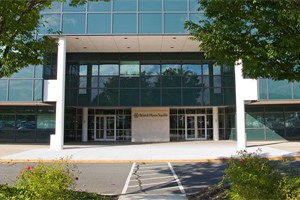 Bristol-Myers Squibb’s anti-PD1 drug nivolumab has been granted breakthrough designation by the FDA, although new clinical data on the antibody from several trials seems to have left investors feeling flat.
Bristol-Myers Squibb’s anti-PD1 drug nivolumab has been granted breakthrough designation by the FDA, although new clinical data on the antibody from several trials seems to have left investors feeling flat.
On the positive side, the FDA awarded breakthrough status to nivolumab as a treatment for Hodgkin’s lymphoma after failure of autologous stem cell transplant and Seattle Genetics’ Adcetris (brentuximab).
However, while BMS reported positive early-stage results with the drug in renal cell carcinoma, advanced melanoma and non-small cell lung cancer (NSCLC), the overall data seemed not to meet expectations and shares in the company closed down more than 6 per cent yesterday.
Perhaps more significantly, new data from a 39-patient trial of nivolumab with BMS’ already-marketed CTLA-4 inhibitor Yervoy (ipilimumab), in which there were three treatment-related deaths and 16 discontinuations due to side effects, has rung alarm bells.
It is not the first time that investors have been concerned by nivolumab news. In January, BMS’ stock went on the slide on concerns that there may be a delay advancing the combination into registration studies.
Nevertheless, the announcement of a collaborative phase I/II trial that will look at the combination of nivolumab with Celldex’ anti-CD27 antibody varlilumab in a range of tumour types, including NSCLC and melanoma as well as ovarian, colorectal and head and neck cancers, failed to lift investors’ spirits.
One reason for the slump is likely the huge expectations for nivolumab, which is considered one of the most promising projects in BMS’ immuno-oncology pipeline, having shown very positive efficacy when added to Yervoy in advanced melanoma in a trial reported last year.
That is not to say all the new results were in any way poor from an efficacy perspective. Data from a phase Ib trial in renal cell carcinoma showed that the combination of nivolumab and Yervoy achieved 24-week progression-free survival (PFS) rates of 64 to 65 per cent across both treatment-naïve and previously-treated patients, with an overall response rate (ORR) of 43 to 48 per cent.
Moreover, phase Ib trials looking at nivolumab in NSCLC revealed a two-year overall survival rate of 24 per cent in patients previously-treated with chemotherapy, with survival even higher (45 per cent) in a group of patients treated at the highest (3mg/kg) dose of the antibody. In chemotherapy-naïve patients whose tumours tested positive for the PD-L1 drug target the overall response rate reached 50 per cent.
Analyst Vamil Divan of Credit Suisse suggested that the side effects seen with nivolumab and Yervoy could restrict the use of the combination, while others said that the efficacy data seen with the drug were simply not as compelling as had been hoped.
BMO Capital downgraded the stock, largely on the back of dashed expectations regarding the potential of the nivolumab/Yervoy combination in NSCLC, although other analysts suggested this was a buying opportunity.
With investors so focused on its immuno-oncology programme BMS stock will likely be on something of a rollercoaster ride over the next few weeks, as it will be presenting a raft of new data on nivolumab and other new drugs at the American Society of Clinical Oncology (ASCO) meeting that starts in Chicago later this month.




